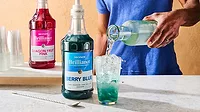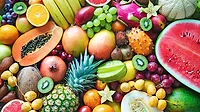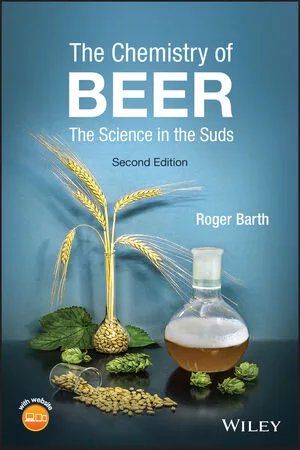Ingredient Spotlight
Beverage-makers turn to fruit blends to meet industry trends
Pairing domestic fruits with tropical ones entices consumers, controls costs
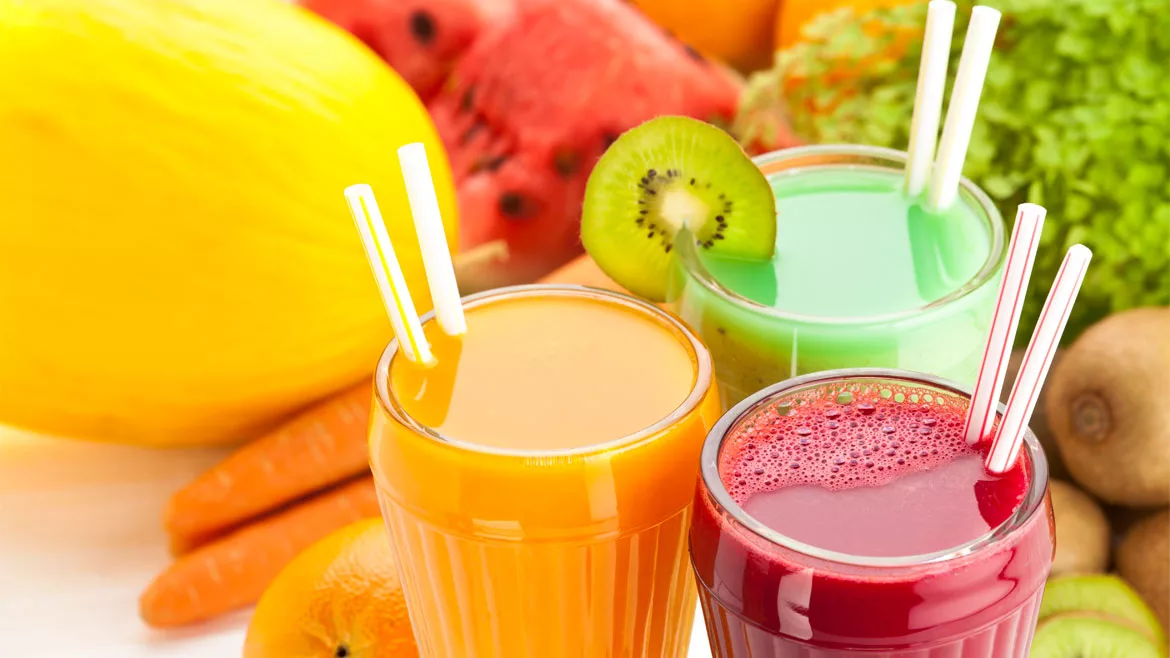
Image courtesy of Getty Images
American actress Marilu Henner has written nine books on diet, health and memory, the most prominent being “Total Health Makeover.” Noting that both of her parents died in their 50s, prompting her to lead a healthier lifestyle, Henner is quoted for saying: “Foods high in bad fats, sugar and chemicals are directly linked to many negative emotions, whereas whole, natural foods rich in nutrients — foods such as fruits, vegetables, grains and legumes — contribute to greater energy and positive emotions.”
When it comes to functional beverages that support healthy lifestyles, experts note that consumer demand for drinks made with natural ingredients — void of added sugar, artificial flavors, colors and preservatives — are essential drivers of the market for fruits and vegetables as ingredients.
In a recent Mordor Intelligence report titled, “Fruit And Vegetable Ingredients Market Size & Share Analysis – Growth Trends & Forecasts (2023-2028),” the market research firm notes that increased consumption of certain beverages is a part of consumers’ transition toward healthy dietary habits.
“This trend is inducing companies to try out unique combinations of fruits and vegetables in their beverages,” the report states. “Beverages are the leading application of fruits and vegetable ingredients in the market, either in the form of concentrate, powders or NFC juices, as consumers seek out newer flavors for sensory experiences and rising concerns regarding various health issues, including obesity and nutritional deficiencies.
“This, in turn, strongly augments the demand for fruit pieces and powders in the beverage segment,” the report continues.
Rebecca Shurhay, senior marketing specialist at Flavorchem, Downers Grove, Ill., notes that with clean label offerings and sustainable practices continuing to dominate industry trends, consumers are turning to natural fruit blends and “better-for-you” fruit flavor profiles for their everyday beverages.
“Consumers’ increased awareness of different fruit flavor profiles has opened the door for food and beverage innovation, especially within functional beverages due to the flavors’ perceived health benefits,” Shurhay says. “According to Mintel, 40% of global beverage launches over the last three years featured a fruit flavor as both domestic and exotic fruit blends have emerged further within sports powders, juices, energy drinks, sparkling waters and teas.”
Kevin Burt, sales manager at Brothers International, Bridgewater, N.J., points to consumers becoming more educated about the benefits of certain fruits, noting that they are consciously thinking about this when choosing certain drinks that might have those beneficial flavors on the labels.
“I would say juice, seltzer, RTD teas are the most common categories for beverages using blends of different fruits/flavors,” Burt says. “Ginger/turmeric seem to be emerging flavors.
“We’ve seen quite a lot of requests for dragon fruit, guava, pineapple, passionfruit as well,” he continues. “Usually all of them are blended with the basic staple fruits ― apple, strawberry, grape, peach, etc.”
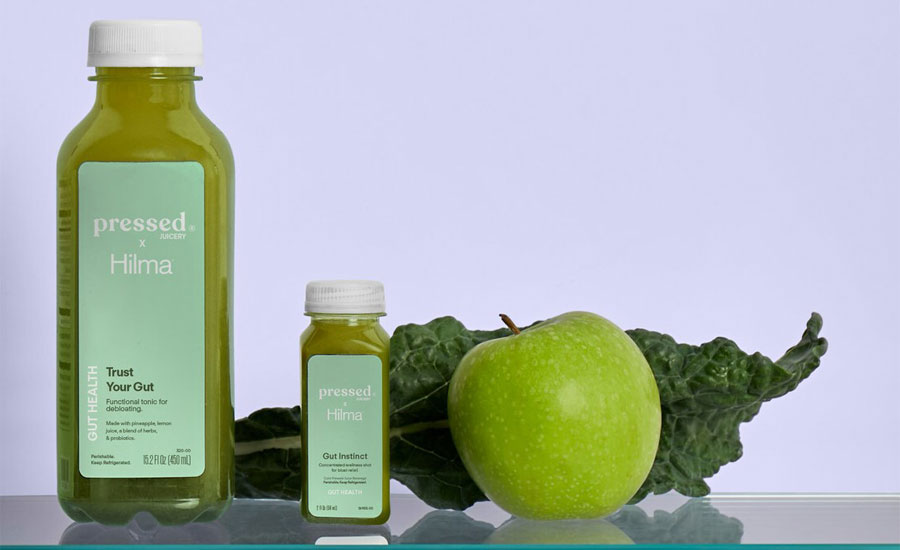
Image courtesy of Pressed
Flavorchem’s Shurhay echoes similar sentiments, noting that domestic fruit flavors such as orange, lemon and apple are the most prevalent in global new beverage launches as they are already well-established among consumers.
“Pairing tropical fruits with familiar flavors makes taste trials more approachable for consumers,” she says. “Domestic fruits are usually blended with a less common tropical fruit in pairings like orange guava, strawberry lychee and mango passionfruit.”
Ingredients to meet consumer demand
As consumer attitudes toward added sugar, artificial flavoring and preservatives shift, experts note that manufacturers are turning to fruit concentrates and extracts to meet rising consumer demand for cleaner ingredients.
In the United States, “the fruit and vegetable ingredients market is driven by sales growth in organic food products, surge in popularity of clean label ingredients, and greater consumer desire for healthy indulgence,” the Mordor Intelligence report states. Further, the food processing industry is progressively incorporating functional ingredients to every possible application, it notes.
Meanwhile, as manufacturers work to normalize the detrimental perception of some beverages, such as soft drinks and juice drinks, the apple ingredient market has witnessed a boost in consumption, according to the report.
“Owing to multifunctional health attributes associated with the ingredient, coupled with the surging demand for apples, witnessed in the carbonated drinks and juice markets, the segment is anticipated to flourish during the forecast period,” the report states.
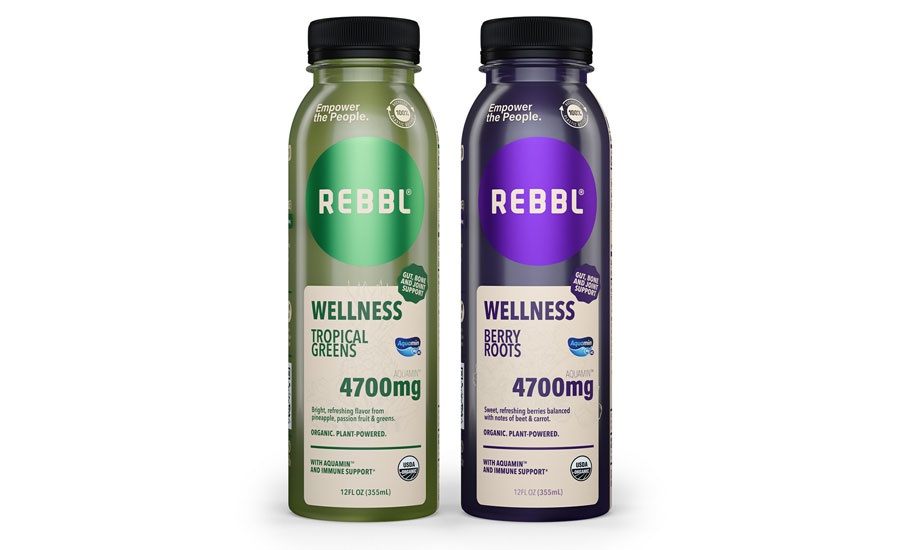
Image courtesy of REBBL
Michael DeLaurentis, vice president of Brothers Ingredients Division, points to beverage manufacturers mostly utilizing fruit blends as a means to save money, noting that “100% of any particular juice is too expensive.”
“In the past few years a lot of fruit juices became very expensive so blends could have been in higher demand,” he says. “Usually a cheaper fruit (like grape juice or apple juice) will be blended with a more expensive fruit (like raspberry, blackberry, cranberry). Fruit essences are added to keep the flavor of the more expensive fruit.”
Noting that U.S. fruit consumers have shown interest in exotic fresh fruits, Flavorchem’s Shurhay points to brands introducing unfamiliar fruit blends like blood orange, yuzu and prickly pear to consumers that are seeking elevated sensory experiences.
“In beverages, global new product launches with yuzu grew at a [compound annual growth rate] CAGR of 43% over five years, followed by dragon fruit (26%), per Innova Market Insights,” she says
Shurhay notes that the opportunity for beverage innovation featuring fruit blends abounds.
“In 2023, there have been over 3,300 global functional product launches that featured a fruit flavor and 40% of those launches were beverage-based,” she says. “From familiar favorites like fruit punch, lemonade and raspberry, to more unique profiles like dragon fruit and calamansi, product developers have plenty of opportunity to innovate with fruit blends in their next beverage launch.”
Looking for a reprint of this article?
From high-res PDFs to custom plaques, order your copy today!





